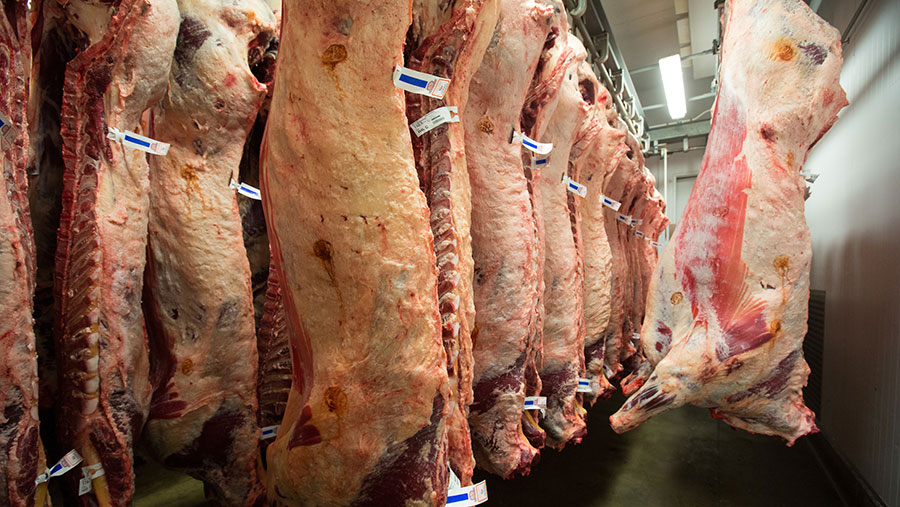Cull cow prices in steep decline as supplies rise
 © Tim Scrivener
© Tim Scrivener Weakening demand for red meat combined with ample cattle for slaughter has left the GB cull cattle price nosediving in recent weeks.
The average price fell by 8p/kg lw in the week ending 28 July, to 102.66p/kg.
This means it has fallen by 23% since its 2018 peak in mid-June when the price was 133.5p/kg.
See also: Lack of rain knocks second-quality dairy cattle values
However prices are in line with the five-year average for this time of year, according to AHDB Beef & Sheep senior analyst, Duncan Wyatt.
Mr Wyatt said that assuming the weather was the reason for the oversupply, more animals were likely to come forward the longer the weather remained hot and dry.
“However, this will be limited by how much herds will be cut back and farmers’ willingness and ability to reduce herd sizes,” he said.
“The reference price for cows is also down on the continent and the French market is currently oversupplied which means low EU prices will also be having an effect on the UK.”
Deadweight prices down
Deadweight prices were also back on the week ending 28 July, with the GB all-prime average down 4p to 357.72p/kg – 11p down on the same period in 2017, according to AHDB Beef & Sheep.
Cows in particular were reported to be well supplied, with the deadweight cow price down 11.5p to average 231.2p/kg in same week, 8% below last year.
Consumer demand for prime cuts of red meat traditionally slumps in hot weather, and many analysts are predicting that any spikes in sales as a result of barbecue season will wear off as prolonged hot weather across the continent drags on.
Waiting lists
Reports of waiting lists for cattle to be accepted by abattoirs have become widespread across the UK as farmers look to reduce herd size over grass availability concerns.
Farmers should be aware of waiting lists of up to three weeks, according to marketing group Farm Stock Scotland, and should pay particular attention to cattle approaching 30 months old.
Telford based beef processor Pickstock saw a 10% increase in throughputs from mid-June to July compared with the same period in 2017, according to managing director Greg Pickstock.
“Waiting times did increase slightly. However, by increasing the processing capacity we are now receiving livestock within seven days of booking in,” Mr Pickstock said.
He added: “We have seen an equal increase in both prime cattle and cow numbers, with the demand for the meat being weaker than usual due to the hot weather.”
